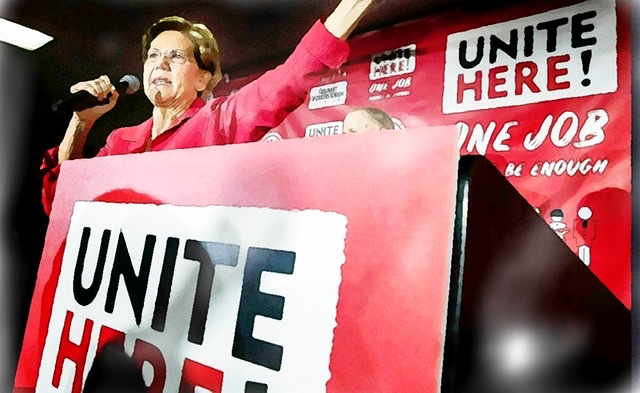Right now, twenty-eight states have Right To Work laws, which prevent trade unions from forcing workers to join unions or pay union dues. The origin of “right to work” dates back to 1902, during a coal strike in Pennsylvania, when Charles Monie explained why he crossed the picket line: “I have a right to work when I like, for what I like, and for whom I like.” Right now, House Democrats want to crush that right with the Protecting The Right To Organize Act (PRO).
This is a patently political ploy to stop the ongoing exodus of union households to the Republican Party. It is patently opposed to the unalienable right to life, liberty, and pursuit of happiness. The right to life trumps all others and holds the individual above the group. The right to liberty protects one’s self-determination from the undue influence of a group. The right to pursue happiness empowers one to self-regulate one’s home and finances. Thus, PRO appears unconstitutional.
The PRO Act is a con designed to install unions in position to raise money and turn out voters for Democrats, a scheme that convinced the Supreme Court to rule against teachers unions in Janus v. AFSCME, because the 1st amendment protected a teacher from forced union dues. And, if the 2020 election and aftermath proved anything, it’s how public-employee unions and Democrats scratch each other’s backs. Just how bad is the PRO Act?
The act would repeal right-to-work laws in twenty-eight states, require employers to give union organizers private information on employees (contact information), and allow snap elections in non-union workplaces before managers can mount rebuttal campaigns. It also codifies card check elections that will make secret ballot elections a thing of the past (anti-union workers will be thereby outed). The act allows the NLRB to invalidate any “no” vote for anything it deems “employer interference.”
The PRO act will extend to franchisees of and contractors to unionized businesses, forcing them to bargain with unions, and allow “secondary boycotts” against suppliers to unionized (or targeted) companies. Above all, the act bans employment arbitration clauses, which are legal in executive contracts and even nuptial (marital) agreements. The net-net affect of the PRO Act is that unions have every advantage of being – and staying – installed at every workplace in America.
How is the individual free when the PRO Act limits the “right” to associate with other unions, including voluntary unions and self-representation? They are not, even to the point most employees of a “union shop” will never cast a ballot. No new worker since 1971 has voted to retain or remove a federal government union, and no new worker at GM’s Michigan plants has voted on the UAW’s fate since 1937. The term “closed shop” is quite literal.
I wrote a few weeks ago that HR1 was Pelosi’s wish for more wishes (blue mail-in ballot tidal waves), and this is just another wish for more wishes (union electioneering to keep one-party rule with Democrats firmly in charge). This – is the Democrat game: subject the free individual to the rule of an all-powerful central state and its various proxies. It is visible. It is persistent. It is here. Standing in its way is only a 6-3 conservative high court.
